16th China Lecture lays out Tibet's progress
Updated: 2023-09-05 By Daqiong and Palden Nyima in Lhasa (chinadaily.com.cn)  Print
Print 


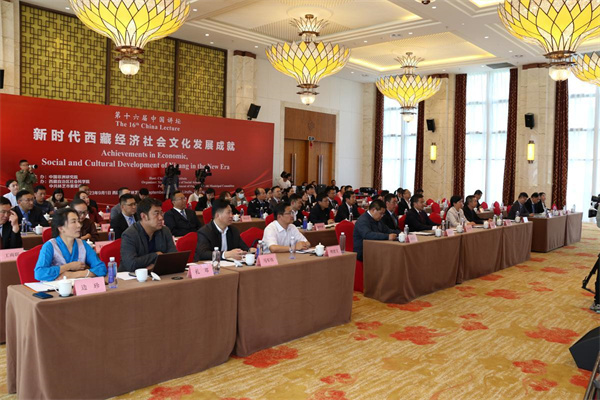
The 16th China Lecture was held in Nyingchi, Tibet autonomous region, on Friday. [Photo provided to chinadaily.com.cn]
Under the theme "Achievements in economic, social and cultural development of Xizang in the new era", the 16th China Lecture was held in Nyingchi, Tibet autonomous region on Friday.
As one of the three major lectures of the China-Africa Institute, the China Lecture invites influential Chinese scholars and African experts on China to address major practical issues in the development of China-Africa relations. They tell Chinese stories and stories of China-Africa friendship to the African people.
The one-day event — jointly hosted by the China-Africa Institute, the Tibet autonomous region's Academy of Social Sciences and the Publicity Department of the Nyingchi City Committee of the Communist Party of China — brought together more than 80 participants from the China-African Institute, the regional academy of social sciences, and various institutes from Nyingchi. More than 50 government officials, scholars and university students from African countries attended the event online.
During the forum, officials and lecturers shared their thoughts on the historic achievement and experience of lifting Tibet out of poverty and stepping into prosperity and stability along with the rest of the country, together with African participants.
The lectures at the forum also reflected the brilliant achievements and experiences of the successful governance strategy in the region under the leadership of the CPC in the new era.
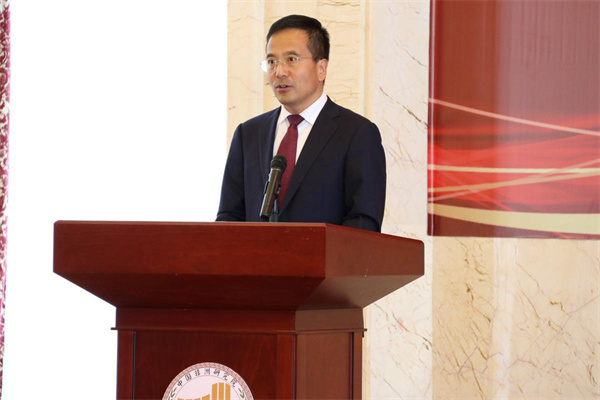
Sun Xiangjun, an official of the Tibet autonomous region's Academy of Social Sciences, speaks at the 16th China Lecture in Nyingchi, Tibet, on Friday. [Photo provided to chinadaily.com.cn]
Sun Xiangjun, an official from the regional academy of social sciences, said since the 1950s, under the leadership of the CPC, along with the historical process of China's socialist revolution, construction and reform — and with the support of the central government and the whole nation — Tibet's social productivity has been rapidly liberated and developed. It has undergone earth-shaking changes.
Sun noted that in recent decades, Tibet's economic and social development has seen healthy, rapid development. Social undertakings have flourished and cultural construction has expanded.
The region has made comprehensive progress and historic achievements in building itself into a united, prosperous, civilized, harmonious and beautiful new socialist Tibet in the modern new era, Sun said.
"Absolute poverty has been eliminated in the region, which has achieved social harmony and stability. People enjoy happiness and well-being, ecological quality maintains good momentum and the excellent traditional culture has received better protection, inheritance and development," Sun said.
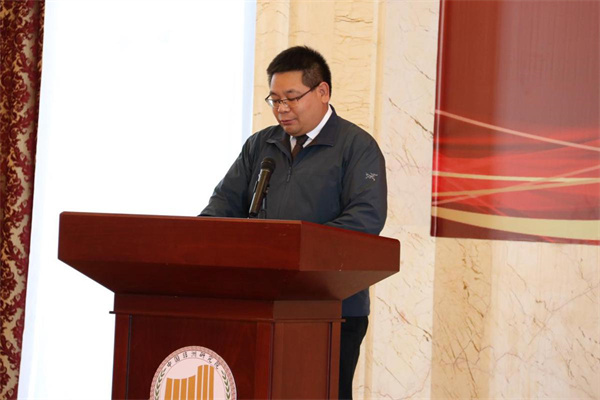
Xu Wuda, deputy head of the rural economy institute of the Tibet autonomous region's Academy of Social Sciences, delivers a lecture at the 16th China Lecture in Nyingchi, Tibet, on Friday. [Photo provided to chinadaily.com.cn]
Xu Wuda, deputy head of the rural economy institute of the academy, gave a systematic summary during the forum of the experience of eliminating absolute poverty in extremely high altitude areas of China.
He noted that while addressing the poverty alleviation in Tibet, a precise poverty alleviation strategy was closely combined with the conditions of the region, as the scale of the impoverished population is large and the poverty structure is complex.
"Precise strategies have to be made to deal with the selection of aid targets, project allocation, the use of funds and different measures for different households," Xu said.
Xu said effective measures such as production development, relocation, ecological compensation, education development and social security have been adopted in the process of poverty alleviation in the region.
"The successful practice and valuable experience of eliminating absolute poverty in Tibet has deepened the understanding of poverty reduction work in border and ethnic areas of China, and it has enriched the development of anti-poverty theories in high-altitude areas," Xu said.
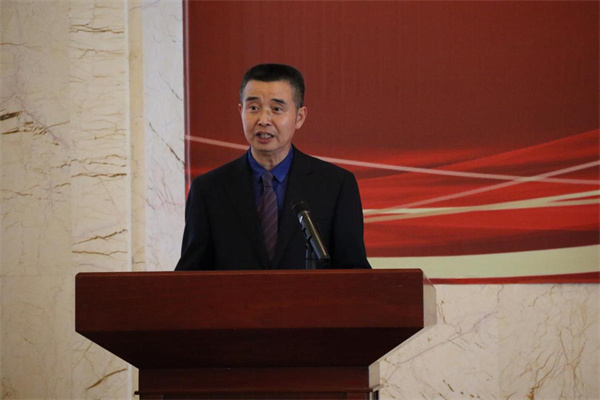
Wu Qingjun, deputy head of Tibet's Academy of Social Sciences, make concluding remarks at 16th China Lecture in Nyingchi, Tibet, on Friday. [Photo provided to chinadaily.com.cn]
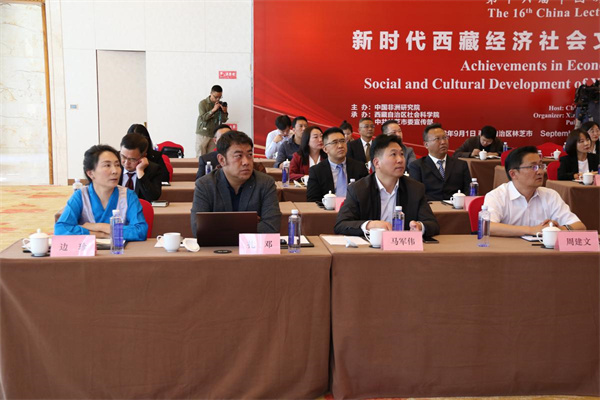
The 16th China Lecture was held in Nyingchi, Tibet autonomous region, on Friday. [Photo provided to chinadaily.com.cn]








